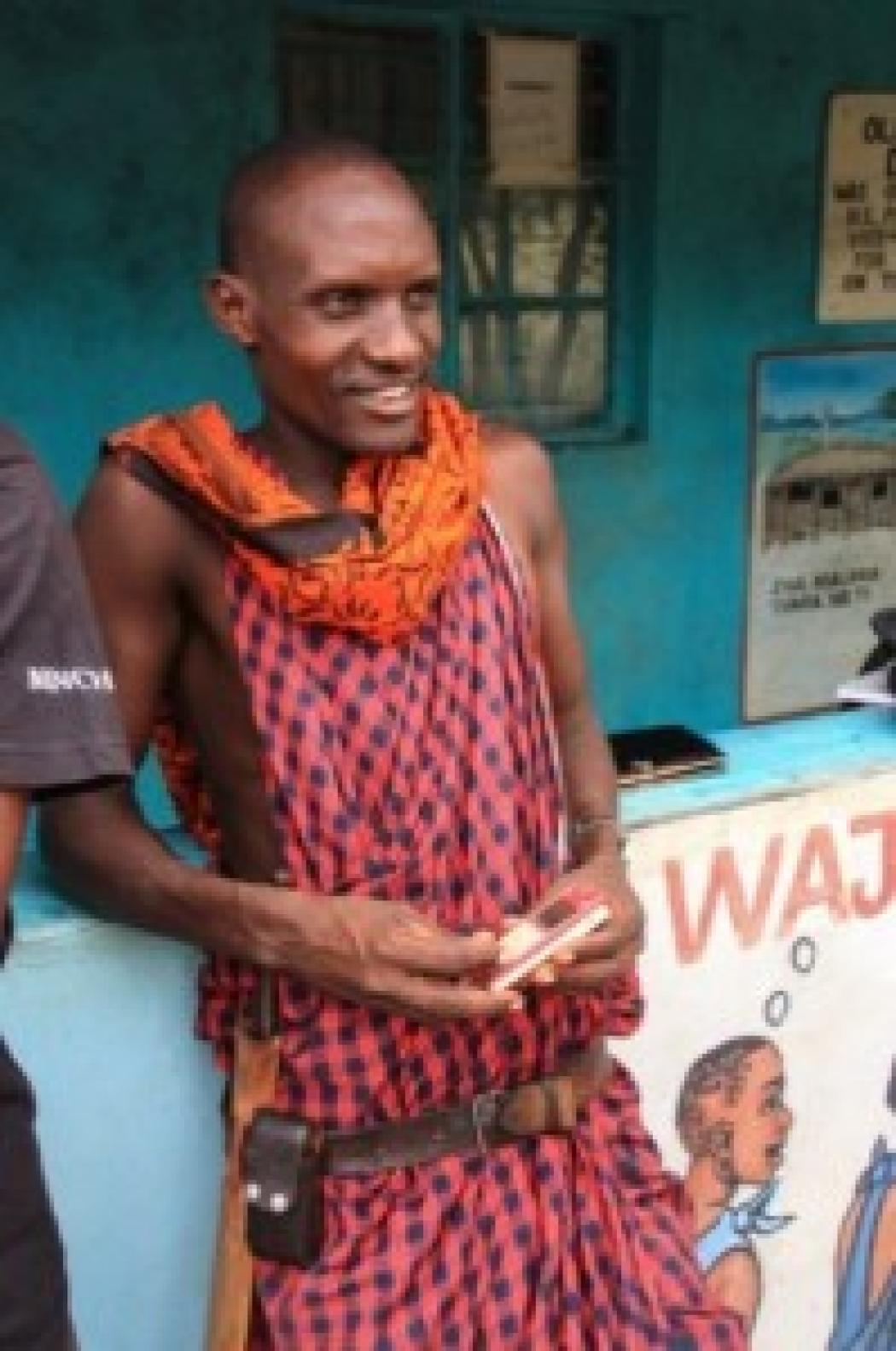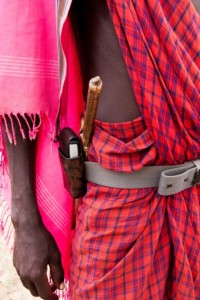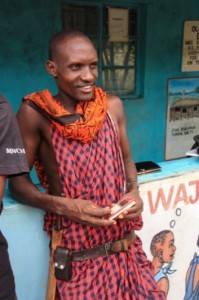Using Basic Mobile Phones to Train Thousands of Healthcare Workers in Kenya

By Annie Geraghty, Accenture Development Partnerships
George Ngamia has been selected by his clan as a Community Health Worker (CHW) in Kenya’s Samburu District. The Samburu lead a semi-nomadic lifestyle in a remote area of northern Kenya with little to no access to the formal healthcare system. Trained in the basics of preventative healthcare by the African-based health development organization, Amref Health Africa, George provides advice, education, referrals and frontline health services to his community, wherever it goes. But all this travelling means he has little opportunity to catch up with the other CHWs in his unit, or to visit the nearby health facility.
George’s situation is not uncommon. There is a critical shortage of all types of health workers in Africa. CHWs fill this gap remarkably well, and in many places provide the first line of healthcare. While many health ministries in Africa have a community health strategy, with a core curriculum, they lack the capabilities to train a qualified health workforce, especially in remote areas. And, at the moment, there is no scalable, sustainable method of CHW training. This means the recruitment and deployment of these workers is much slower than it could be. Indeed, of the CHWs that have been trained, most have only received a fraction of the training and tools they need; training is inconsistent and retraining opportunities are thin on the ground.
But here’s the good news. The ongoing mobile technology “revolution” in Africa has provided us with an opportunity to reach CHWs with tailored content specific to their needs. Of the 97 percent of CHWs who own a mobile phone, the majority have basic or feature (not smart) phones, and so our new Health Enablement and Learning Platform (HELP) has been developed to work precisely on these basic phones, to provide access for as many CHWs as possible.
In Kenya, HELP provides the Ministry of Health-approved training content to CHWs using a sophisticated mobile learning methodology through any mobile phone (both basic and smart phones), empowering health workers through learning opportunities and enablement tools. It has been developed through a cross-sector collaboration between Amref Health Africa, Accenture, Mezzanine, Safaricom and the M-Pesa Foundation. HELP also provides ongoing, personalized training and productivity tools such as job aids and decision trees, developed in collaboration with the Ministry of Health.
HELP allows George to update his own knowledge on a regular basis and keep in touch with his fellow CHWs and his supervisor (a Community Health Extension Worker - CHEW) through a free group chat function available on his basic mobile phone.
 “I never knew a phone could be used to learn. It provides more in-depth and detailed information than face-to-face interaction, and will help me to deliver a high quality service.” George Ngamia, CHW, Samburu, Kenya. Photos courtesy of Amref Health Africa.
“I never knew a phone could be used to learn. It provides more in-depth and detailed information than face-to-face interaction, and will help me to deliver a high quality service.” George Ngamia, CHW, Samburu, Kenya. Photos courtesy of Amref Health Africa.

Following a tailored education model, training is delivered through SMS and interactive voice response (IVR) and controlled with an advanced scheduling system. Randomized quizzes keep CHWs on their toes and automated reports keep supervisors informed of their progress.
May 2014 saw the successful completion of a 12-month pilot, where HELP was rolled out to 318 CHWs in three regions across Kenya – urban, rural and nomadic. A total of 215,000 SMS messages and 140,000 minutes of IVR audio were delivered to CHWs and 8,500 health-related group chat messages were sent. Seventy-eight percent of CHWs fully completed all nine training topics with an average quiz score of 80 percent and an overall satisfaction rating of 4.7 out of five possible. Furthermore, after four months we found that the knowledge retention level was 12 percent higher in the pilot groups.
We are now rolling the program out to 3,000 CHWs, reaching 300,000 people, and partnering with other NGOs to enable greater scale through collaboration. Together, as a coalition of NGOs and implementers, the private sector, Ministries of Health, donors and foundations, our ultimate goal is to train hundreds of thousands of health workers across Africa. We are also evolving the platform towards smart devices and richer content.
With sub-Saharan Africa expected to have 930 million mobile subscriptions by the end of 2019 – nearly one for every resident – you can be sure that mobile devices will play a critical role in changing and improving healthcare delivery across Africa, especially in remote areas where most people don’t have access to quality health facilities or providers.
For George, with such accessible training materials and support tools delivered through his basic mobile phone, that era has already begun.
